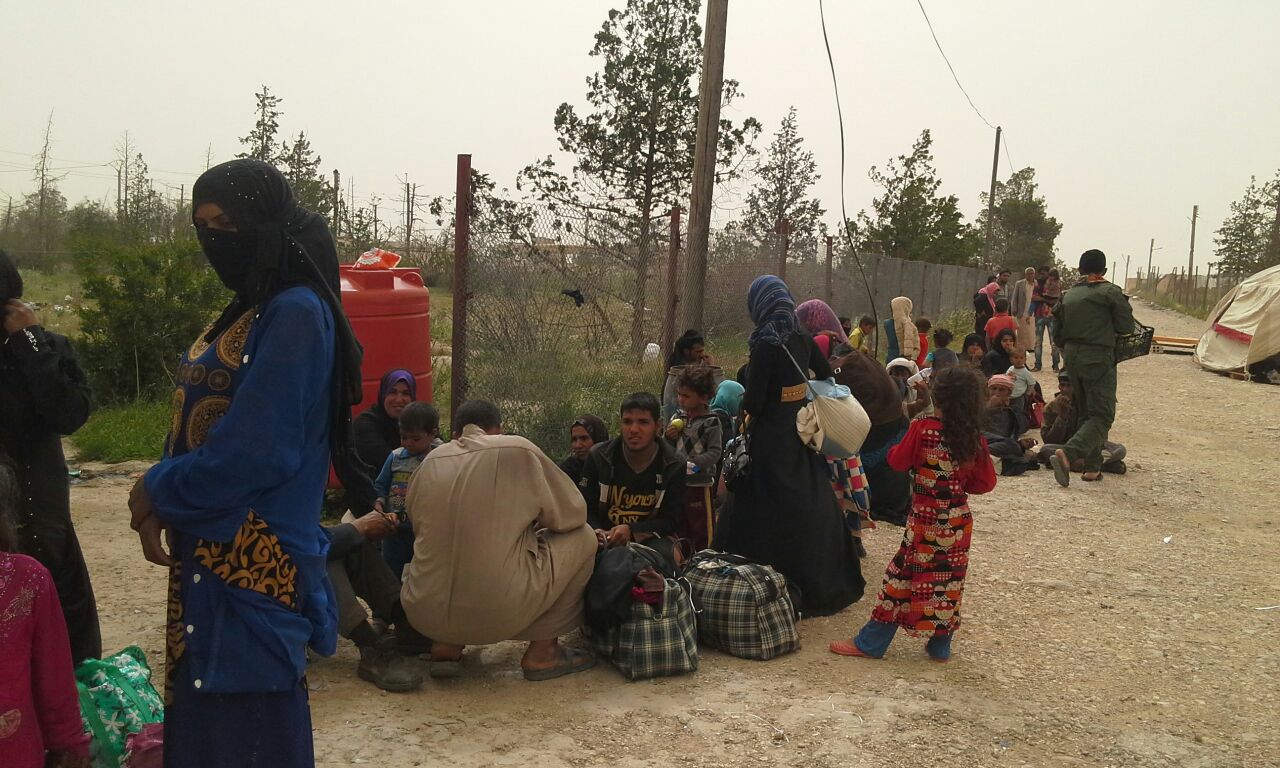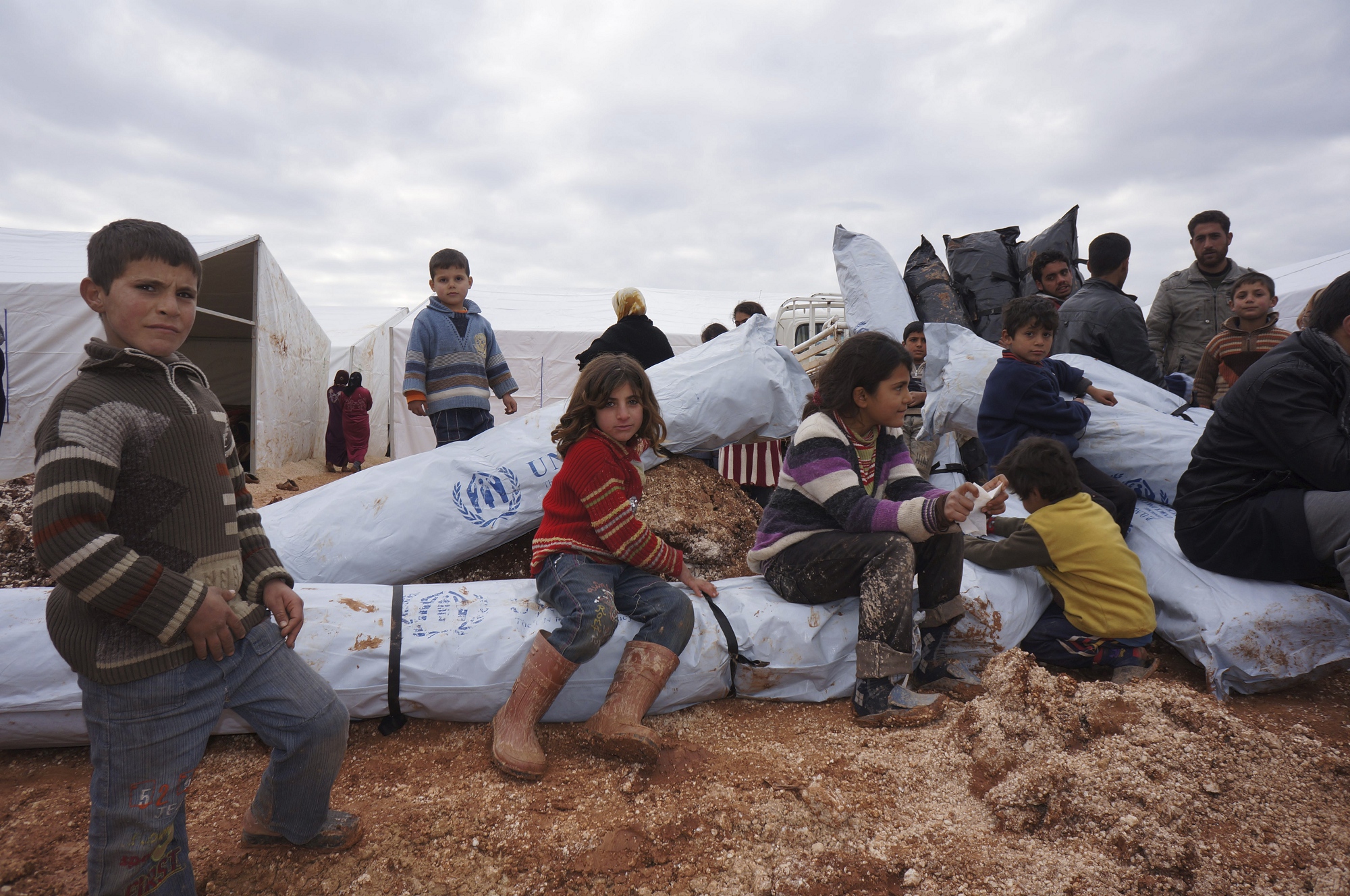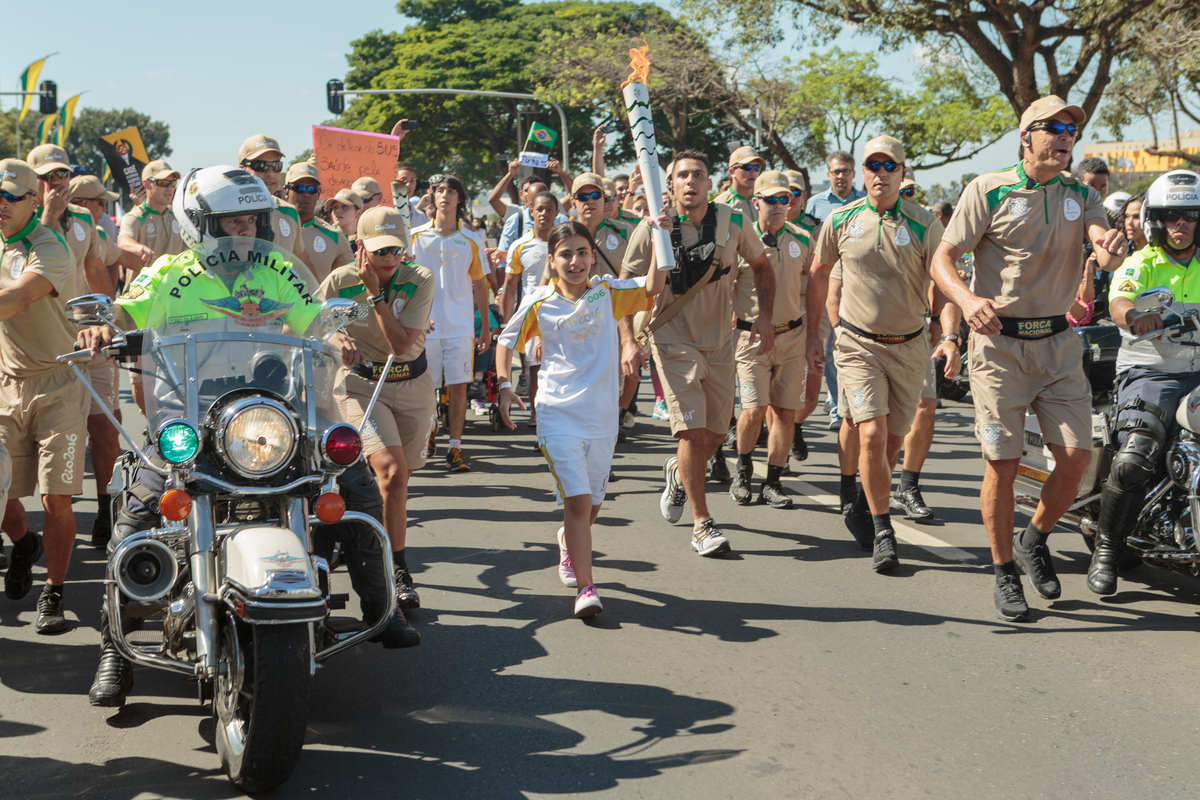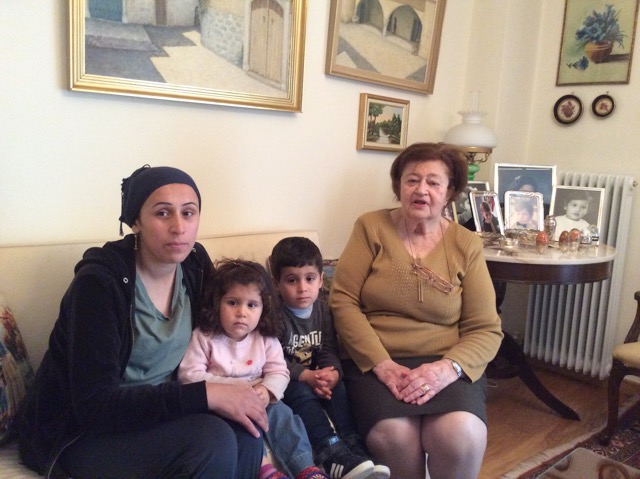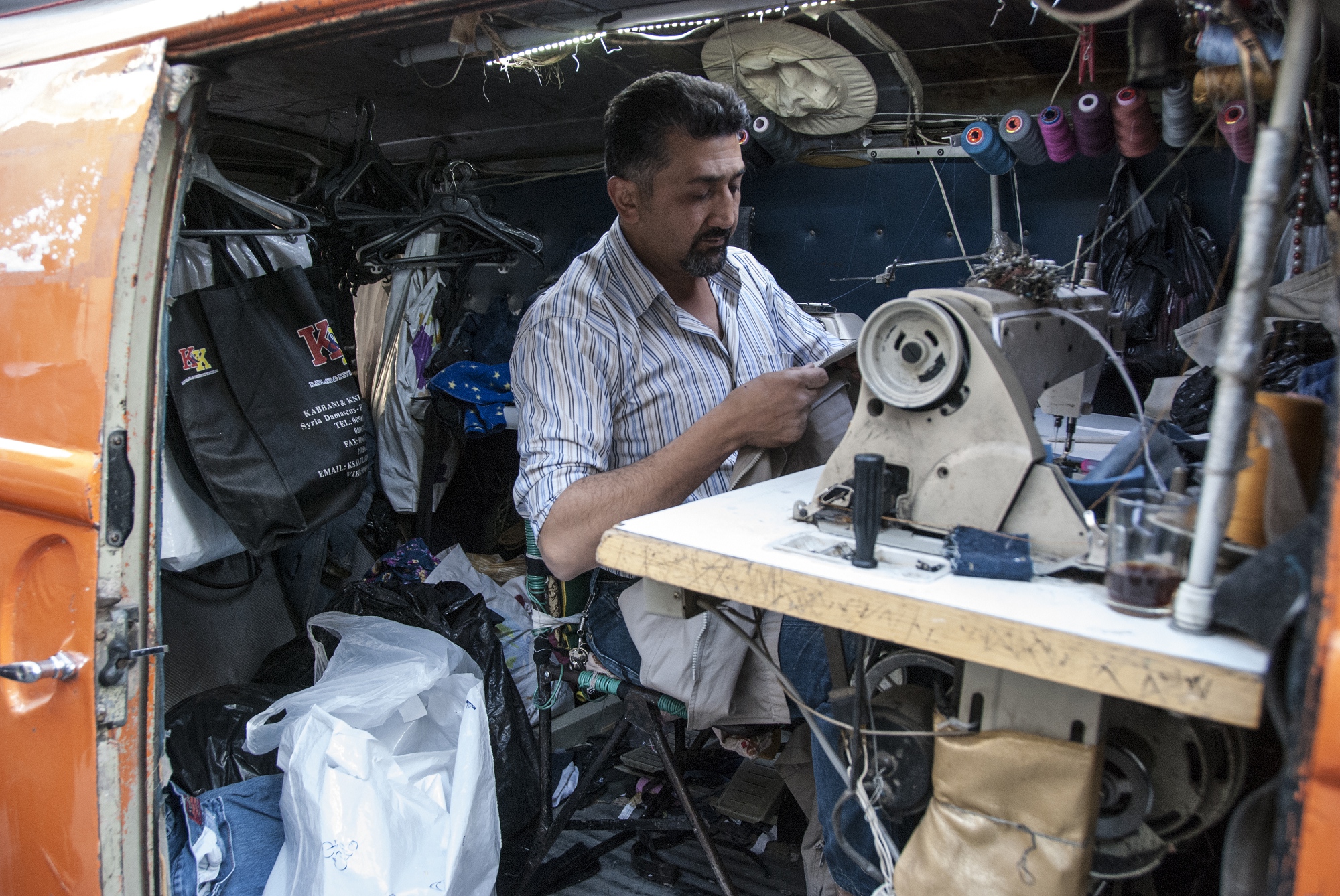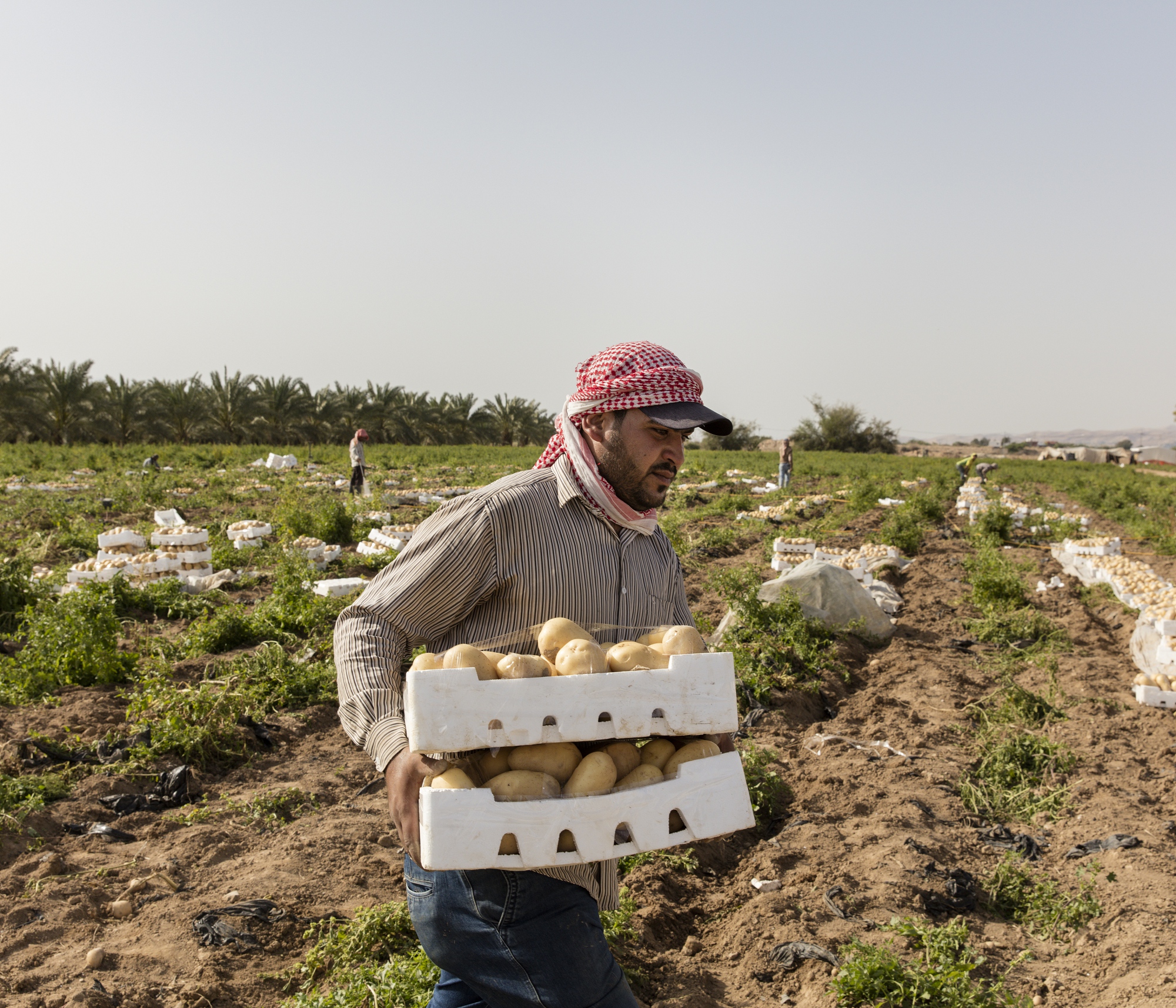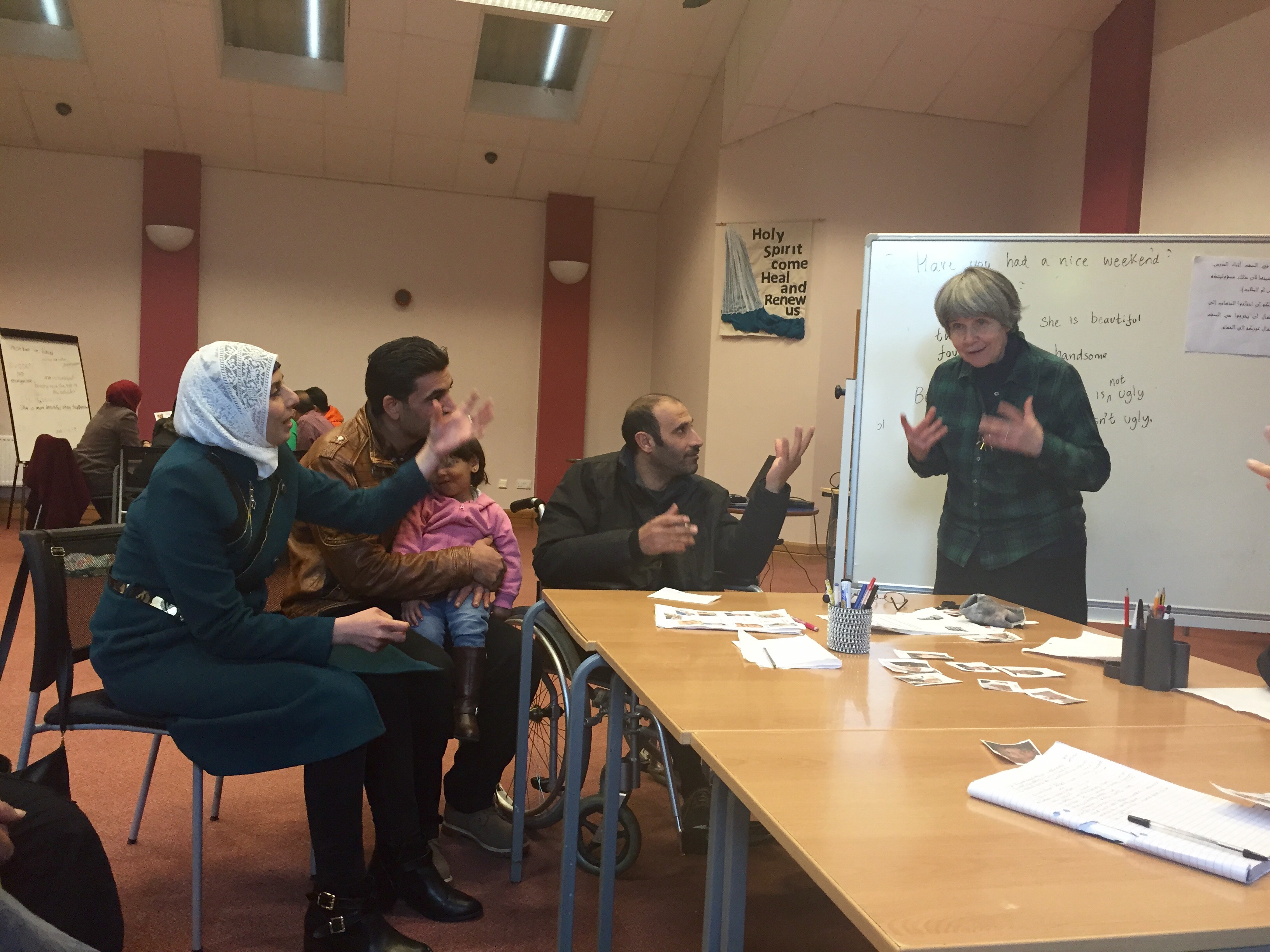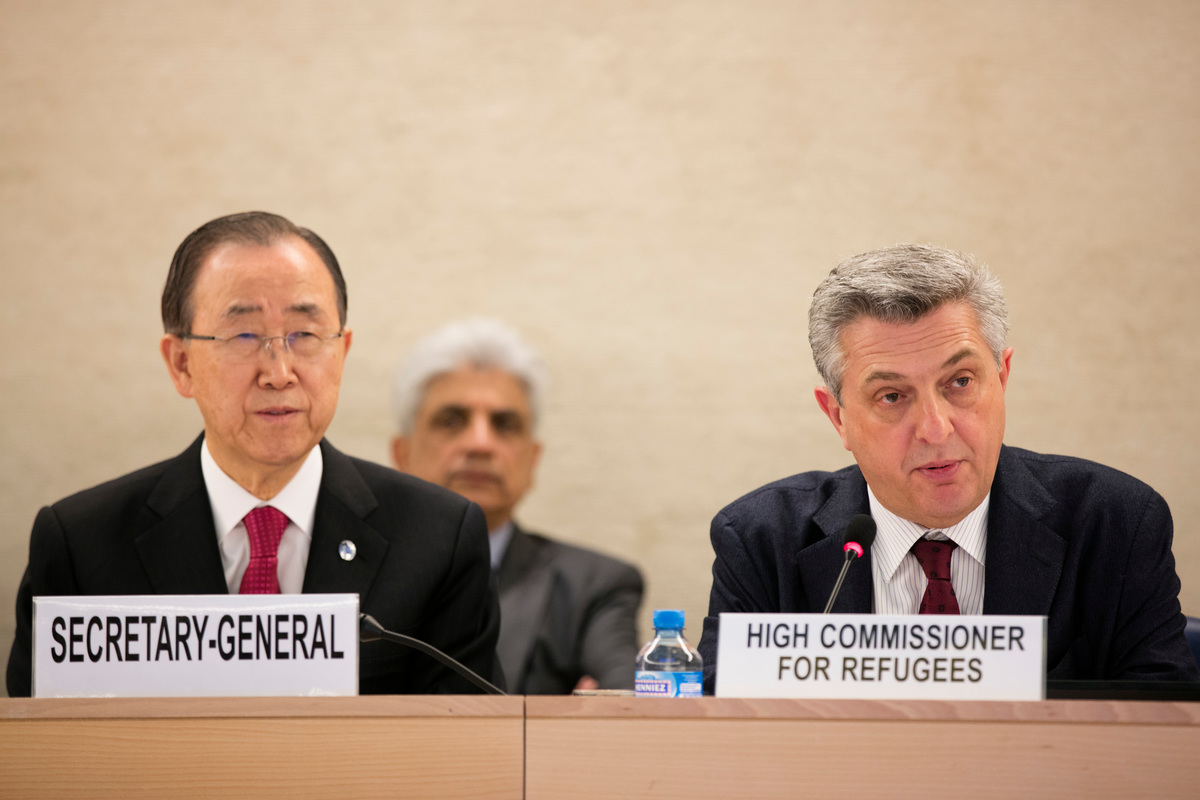Syria Crisis: UNHCR issues cards against the cold in Lebanon
Syria Crisis: UNHCR issues cards against the cold in Lebanon

RMEILEH, Lebanon, February 13 (UNHCR) - The weather was probably low on Nouk Qamber's list of priorities when she fled from the violence in Syria and sought shelter in neighbouring Lebanon. But it was soon on her radar screen when the worst winter storm in years brought freezing temperatures, thick snow and rain last December.
Fortunately, the mother of four, who lives in one of three small refugee settlements in Rmeileh, Lebanon, had received an ATM card from UNHCR that was loaded with enough credit to pay for heaters and fuel to keep her family warm. "I really benefited from the cash card," said the 24-year-old.
ATM cards have been used by UNHCR to help mainly urban refugees elsewhere in the world, including in neighbouring Jordan, but this winter marked their first widescale use in Lebanon, home to the largest number of Syrian refugees. UNHCR handed them out to benefit 450,000 people as part of a US$138 million regional winterization programme.
Each card was loaded with enough credit (US$50) to buy a small heater, and topped up with US$100 a month to buy fuel and other winter necessities. Cardholders like Nouk can budget their expenses, putting side a bit for other necessities, such as food from a local vegetable vendor ."I found it much better getting cash," Nouk said. "We buy a lot of things with it for the house, including food, groceries."
Rmeileh is a small seaside resort just south of Beirut. But up a nearby hill, nestled in every spare space, are the makeshift homes of Syrian refugees. Hastily erected concrete block walls are cobbled together, with tarpaulins and cardboard strung up to complete the structures. Fiercely house-proud residents decorate the interiors with old curtains, silk flowers and other objects they have brought with them or picked up.
These small informal settlements are comprised mainly of long-term residents, many of whom, like Nouk, have been in Lebanon almost since the Syrian crisis began in March 2011. "There was heavy shelling . . . I have little children, so we were scared and left," she explained of her flight from her homeland.
Located a long way from services and stores, the residents of Rmeileh buy their food from a grocer who drives past daily with a van full of produce, stopping to allow them to shop from out of the back of the van.
UNHCR and its partners singled out families living in precarious conditions, like Nouk's, to receive supplies that would protect them against the bitter winter weather. UNHCR Field Officer Nour Fakih said: "We were hearing the winter would be really harsh, we needed to act quickly." Some 800,000 Syrian refugees are scattered in more than 1,500 locations throughout Lebanon, many in higher, colder elevations in the north and the Bekaa Valley.
Syrian families that have never used an ATM card are given a 25-minute briefing on how to use it and on the purpose of the funding. There are two hotlines available to answer questions ranging from queries about PIN numbers to lost or misplaced cards.
The response from cardholders has been positive for those receiving them, said Fakih. "When we actually met the families after they used the cards, we kept asking them: 'How was the experience?' Many had not used them before and asked their new Lebanese neighbours how they functioned.
Previously, aid has been distributed as goods or in vouchers. But such methods required residents to travel to a central collection or distribution point. In addition, the vouchers are non-transferrable, so only certain things can be bought with them. ATM cards can be topped up automatically. This makes targeted assistance simpler, especially in urban areas where refugees are scattered over wide areas.
Abu Ahmed, a father of six who lives a few doors down from Nouk, agreed that the cards were more convenient: "The cash card has been a real help," he said. "It's much better, a lot less hassle."
By Emma Beals in Rmeileh, Lebanon


